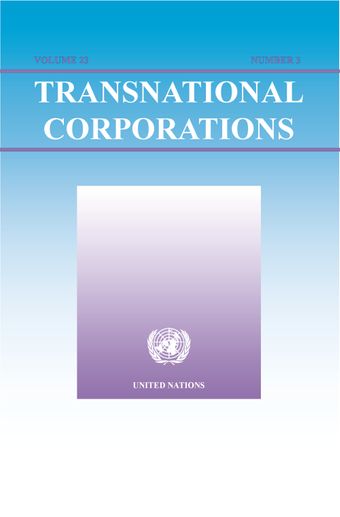-
Foreign direct investment as a catalyst for domestic firm development: The case of Sri Lanka
- Source: Transnational Corporations, Volume 23, Issue 3, Jun 2017, p. 1 - 32
-
- 02 Jun 2017
- Previous Article
- Table of Contents
- Next Article
Abstract
Foreign direct investment (FDI) carried out by multinational enterprises (MNEs) is recognized as a mechanism through which domestic firms can learn and improve competitiveness. Unlike the extant literature, which tends to focus on the aggregate effects of FDI in Sri Lanka, we investigate the role of FDI for domestic firm development at the firm level. Using World Bank Enterprise Survey data supplemented by industry data, preliminary investigation reveals that, compared with domestic firms, MNEs are larger, more productive, more profitable and more active in research and development (R&D). MNEs hire higher proportions of skilled workers and undertake more in-house training programs. They are also more export-oriented but rely more on inputs of foreign origin. The gaps between foreign and domestic firms indicate the potential that Sri Lankan firms can learn from MNEs and from FDI. The econometric study on firm-level productivity indicates positive direct effects and negative spillover effects of FDI on domestic firms. The findings have important policy implications.



